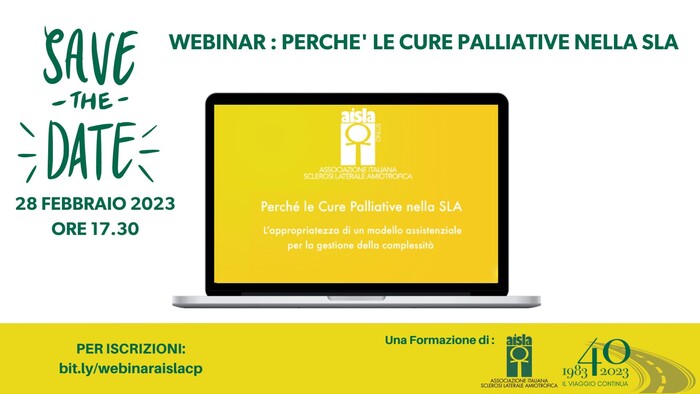(ANSA) – ROME, FEBRUARY 15 – Palliative care in ALS, amyotrophic lateral sclerosis: fundamental in a rare and complex disease like this right from the diagnosis, and with a different approach, linked to ‘neuropalliative care’, compared to the more well-known one related to oncological treatments.
The goal is the best possible quality of life. A presentation webinar of the document ‘Why palliative care in ALS?’ will be dedicated to this theme, organized by Aisla, the Italian Amyotrophic Lateral Sclerosis Association, for 28 February, rare disease day. Professor Mario Sabatelli, president of the medical-scientific commission of Aisla, will talk about it with Michele La Pusata (vice president of Aisla and patient with ALS), professor Claudia Caponnetto (neurologist at San Martino Hospital in Genoa), doctor Simone Veronese (Sicp Secretary , Italian Palliative Care Society) and Dr. Daniela Cattaneo (Aisla Palliative Care Consultant and author of the document). “ALS is an incurable disease but it is treatable – notes Stefania Bastianello, Technical Director of Aisla – one wonders what a cure is, where research, albeit with great strides forward, has not yet provided definitive answers. A cure can be understood as any approach that improves the quality of life”. “The integration of palliative care into the care path of the person with ALS – underlines Aisla – is a condition demonstrated by numerous studies. It is confirmed by solid data that patients with complex care goals benefit from the support of a palliative care specialist and that integration models can help facilitate the delivery of the most appropriate care”.
“The unpredictability of ALS is subjective and never univocal – notes Dr. Daniela Cattaneo – functional losses have different trajectories. This involves the complexity of having to provide the person with an approach as specific and personalized as possible”. Palliative care for Aisla responds “to the high complexity of the pathology: they intervene with a never univocal model based on multiple factors. An effective communication, capable of clarifying the possible paths, where it becomes primary to know and manage uncertainty”. (HANDLE).
breaking latest news © Copyright ANSA

